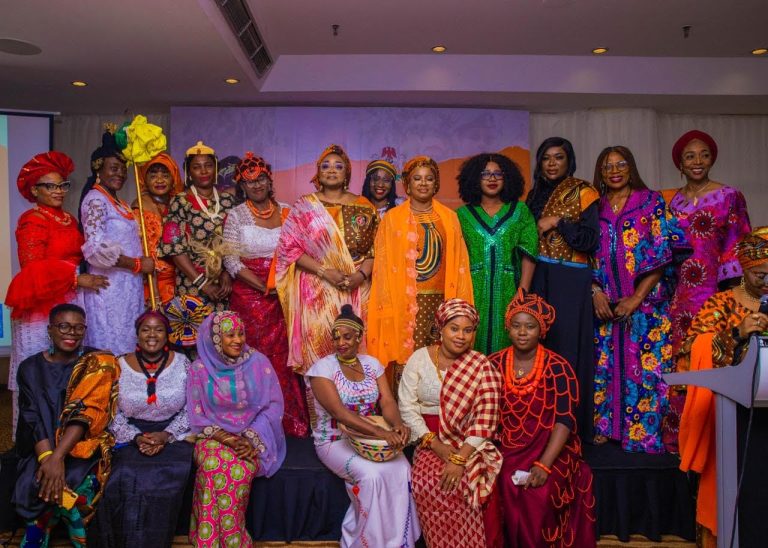From Juliana Taiwo-Obalonye, Abuja
A groundbreaking blueprint for 2024–2027 has been unveiled by the Ministry of Women Affairs in a major step forward for gender equality.
The Minister of Women Affairs, Imaan Suleiman-Ibrahim, presented the ministry’s vision and ambitious goals for the next four years at a high-level stakeholders’ event in Abuja, themed “Collaborative Pathways to Gender Equality and Women’s Empowerment Roadmap.”
The Minister stressed that close cooperation with communities, MDAs, development partners, and the global community is necessary to fulfil the ministry’s mission and goals.
She highlighted several critical challenges Nigeria faces in attaining gender equality:
A maternal mortality rate of 1,047 deaths per 100,000 live births (WHO, 2023).
Gender-based violence, with 1 in 4 girls experiencing sexual abuse before the age of 18, and 33% of women aged 15–49 suffering physical violence (NDHS, 2018).
Low political representation, as only 3.6% of women hold parliamentary seats.
Economic barriers, with 41% of women-led MSMEs struggling to access markets and financing, and just 47% of women having bank accounts (NBS, 2023).
Widespread use of firewood in 67.8% of households, posing health risks (NBS, 2024).
The ministry’s roadmap includes a comprehensive campaign to provide menstrual hygiene products and education to 10 million girls and women, ensuring their essential health needs are met. Additionally, the ministry aims to economically empower 10 million women, contributing to the goal of building a $1 trillion economy.
Recognising the impact of gender-based violence, the ministry plans to offer psychosocial, legal, and reintegration support to 200,000 survivors annually. It also seeks to enrol 2 million out-of-school children, particularly girls, into safe learning environments.
To bolster agricultural productivity, the ministry will train 1 million female smallholder farmers in climate-resilient practices. It also aims to transition 1 million households to clean and sustainable cooking energy sources.
Another crucial target is to reduce maternal mortality rates by 20% and establish six specialist hospitals dedicated to women’s and children’s health. Additionally, the ministry plans to train and deploy 50,000 social workers and caregivers to support vulnerable families nationwide.
Through cooperation and resource mobilisation, the minister urged the international community, development partners, and stakeholders to support the ministry’s initiatives. She emphasised the importance of bolstering institutional capacity, improving advocacy, and fortifying policies to close gender gaps, safeguard women and children, and ensure sustainable development.
“This roadmap is a shared vision for a Nigeria where women and children can survive, thrive, and prosper,” Suleiman-Ibrahim stated. “Together, we can create a legacy of empowerment and equity for generations to come.”
The Permanent Secretary in the Ministry, Gabriel Aduda, reiterated that the roadmap, “Pathways to Gender Equality and Women’s Empowerment,” is not just a framework but a strategic blueprint outlining actionable steps to address the systemic barriers that have held women and girls back for far too long.
The United Nations Development Programme (UNDP) Country Representative, Elsie Attauah, stated: “At UNDP, we believe that gender equality is not just a fundamental human right; it is also a precondition for sustainable development, peace, and prosperity. Nigeria has made notable strides, yet we know there is much more to be done.”
Represented by Gender Lead at UNDP, Onyinye Ndubuisi, Attauah emphasised the organisation’s dedication to promoting gender justice, highlighting the necessity of swift action to empower women and girls, fortify alliances, and enhance collaboration to achieve these goals.
The UN Women Representative in Nigeria, Beatrice Eyong, stressed that gender-based violence extends beyond physical harm, noting that it costs Nigeria 1.5% of its GDP.
She cited UN Deputy Secretary-General Amina Mohammed as an example of accomplished Nigerian women on the global stage, highlighting their skills and knowledge despite significant obstacles. Eyong lamented that while Nigerian women excel abroad, they remain underprivileged at home.
Eyong urged continued advocacy following the 16 Days of Activism against gender-based violence and reaffirmed UN Women’s commitment to gender equality and women’s empowerment.
“Well, respecting women means fighting for the rights they should have for our loved ones. Therefore, as a man, I firmly support equality between men and women and support women in achieving the status they deserve, because I don’t want the women in my family to be subjected to unfair treatment,” said the Director of the China Cultural Centre in Nigeria, Yang Jianxing.
Yang emphasised the importance of gender equality for national development and congratulated the Federal Ministry of Women Affairs for hosting the event. Highlighting that women’s rights are crucial for social progress, he noted that in China, women are regarded as “half the sky,” with legal protections ensuring their rights to education and work.
He concluded by calling for collaborative efforts towards a world where men and women enjoy equal status.
